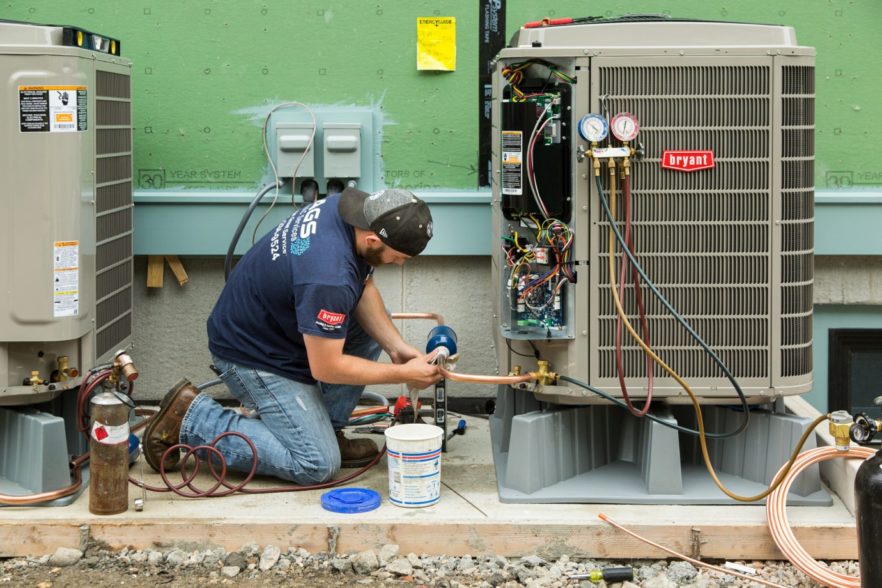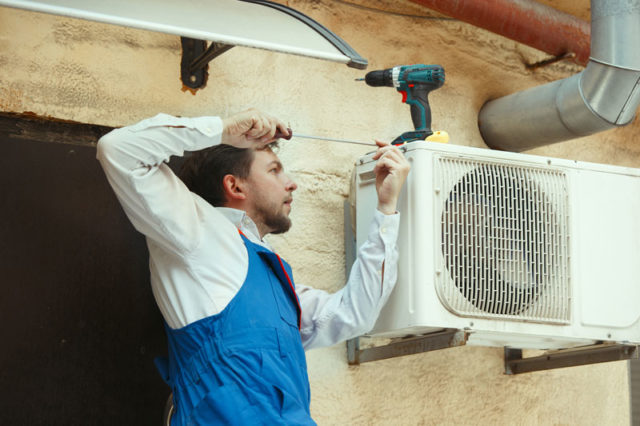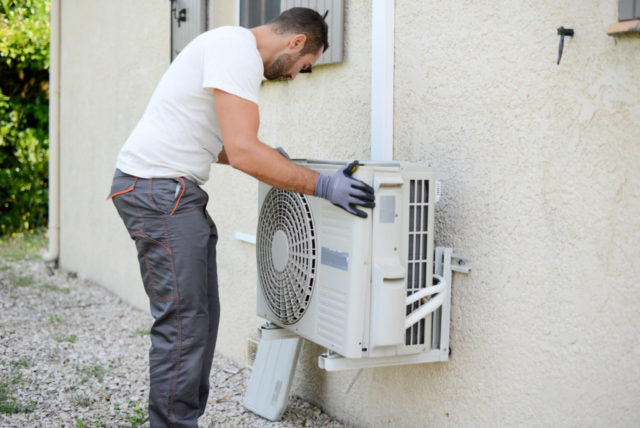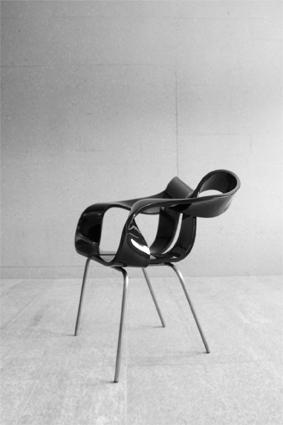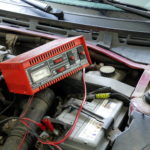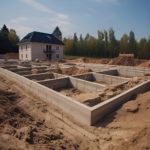Air conditioning is a very important feature in a modern home because it facilitates the regulation of humidity and temperature in the house. The importance is most often noted during the summer months when the temperature is usually very hot and uncomfortable.
In addition to the provision of comfort, the air-conditioning system also helps to improve the quality of air in the home. It does this by filtering pollen, dust and allergens from the space. This is a vital feature for folks that suffer from asthma or have allergies because clean air reduces their symptoms and improves their health.
There are many more benefits attached to installing a sound air conditioning system in your home. But the starting point is installing the right one and doing it right. Therefore in this article, we will discuss the basics of installing ACs in your home.
How to Determine the Right Sizing for Air Conditioning System for Your Home
When looking to choose the best AC system for your home, it is important to get the right size. This is because getting the sizing wrong will greatly affect both your pocket and the unit itself. A smaller unit will work too hard to cool the space and it will wear out faster than if it was adequate for the space.
If you get one that is too big for your space it will cost you more for upkeep and in bills too. So let’s look at some factors that will determine the sizing of an air conditioning unit:-
Factors to Consider when Choosing an Air Conditioning System
There are factors to consider when looking at units to install. It recommended that you consult an expert to help you with making this choice. When you consult a HVAC expert, they will consider some factors before they recommend any option. Some of these factors include the following:-
Size of the Home
The size of the home where the installation will take place is one of the most important factors to consider when choosing the best AC system. Larger homes will without doubt require larger units so that the space can be cooled effectively. We have already talked about how inadequate sizing will mean either higher bills or inadequately cooled rooms and units that will wear out prematurely.
Layout of the Home
The layout of the home also affects the size of the air conditioning to use. If your home has an open floor plan, it will require less cooling power than a home with many separate rooms. Additionally, if the rooms are large with high ceilings, they will require bigger cooling units. You can check out this video for more on this subject: https://www.youtube.com/watch?v=UIEnE3SYHjY.
Insulation
Insulation in a home is what keeps air and heat from escaping through crevices in the wall, windows and roof. A home that is well insulated will not require too much cooling power and thus can use a small AC unit. However if a home is not well insulated, it will require strong cooling power and thus must have an adequate sized system.
Climate
People who live in regions that are hot and humid most undoubtedly need large air conditioning units to keep their homes cool. But people who live in cooler climates can get away with using smaller sizes of cooling units.
Maintenance of Your Air Conditioning System
After you have decided on the size of the unit to fix and have installed it, you need to know how to maintain it and also have a maintenance routine.
Every AC system needs regular maintenance so that it can continue to function adequately and optimally. Furthermore, a well maintained unit does not require too much electricity to function. But if you do not maintain the unit well, it will use too much energy to work which in turn translates to higher electricity bills.
There are simple maintenance tasks that every homeowner can perform and they include the following:-
Changing Filters
This can be considered the most important task in every maintenance routine. Dirty or clogged filters reduce how much air flows into and out of the system and this affect the efficiency of the system. Additionally, obstruction of airflow causes air to bypass the filter and dump dirt directly into the coil of the evaporator and hinder its ability to absorb heat.
Once you clean a dirty filter or change a clogged one, it will reduce the energy consumption of the unit by about 5 to 15%.
Cleaning the Outdoor Unit
If you have an outdoor unit, you need to check the condenser coils and clean them regularly. Due to the fact that this is an outdoor unit, it is easy for the unit to collect dirt and debris but thankfully, you can also see the dirt easily and clean it appropriately.
Ensure that there is minimal debris and dirt around the condenser unit; trim the bushes or even flowering plants around it. Give a space of about 2 feet between the unit and the plants; this makes room for adequate air flow around it and thereby enhances the performance of the unit.
Checking Refrigerant Levels
The refrigerant is that substance in the AC unit that chills the warm or hot air from outside and circulates it as cool air in the house. It comes in the form of liquid or vapour and is found inside the evaporator and condenser coils. Its basic function is to make sure that cool air is circulated in your home for the comfort of the occupants.
So you need to check the levels to be sure that it is enough to do the job. If you do not know how to check it, you can ask your technician.
When Should You Call a Professional for Maintenance?
We have pointed out just 3 things that a homeowner can DIY to maintain their air conditioning unit. But there may come a time when you need to call in a professional. It is recommended that you call in a HVAC expert when you need air conditioning repair instead of doing it yourself. Some issues are not advised to be handled by an amateur. So once you do not understand what is happening with your cooling unit, please call an expert.
Conclusion
The importance of a cooling unit in a home cannot be overemphasised and that is why we have taken out time to put together this piece. Take note of the things that you need to consider before you choose a unit, what you as homeowner can do to maintain your unit and when to call in an expert.
